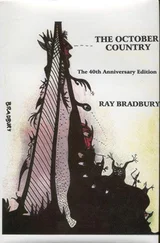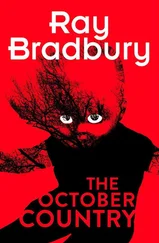Mr. Carrington, Mortuary President, heard the disturbance in his office and came toddling down the aisle to investigate. "Here, here," he whispered to everyone, finger to mouth. "More respect, more respect. What is this? Oh, madam, may I help you?"
She looked him up and down. "You may."
"How may I be of service, please?"
"Go in that room back there," directed Aunt Tildy.
"Yee-ess."
"And tell that eager young investigator to quit fiddlin' with my body. I'm a maiden lady. My moles, birthmarks, scars, and other bric-a-brac, including the turn of my ankle, are my own secret. I don't want him pryin' and probin', cuttin', or hurtin' it any way."
This was vague to Mr. Carrington, who hadn't correlated bodies yet. He looked at her in blank helplessness.
"He's got me in there on his table, like a pigeon ready to be drawn and stuffed!" she told him.
Mr. Carrington hustled off to check. After fifteen minutes of waiting silence and horrified arguing, comparing notes with the mortician behind closed doors, Carrington returned, three shades whiter.
Carrington dropped his glasses, picked them up. "You're making it difficult for us."
" I am?" raged Aunt Tildy. "Saint Vitus in the mornin'! Looky here, Mister Blood and Bones or whatever, you tell that-"
"We're already draining the blood from the-"
"What!"
"Yes, yes, I assure you, yes. So, you just go away, now; there's nothing to be done." He laughed nervously. "Our mortician is also performing a brief autopsy to determine cause of death."
Auntie jumped to her feet, burning.
"He can't do that! Only coroners are allowed to do that!"
"Well, we sometimes allow a little-"
"March straight in and tell that Cut-'em-up to pump all that fine New England blue blood right back into that fine-skinned body, and if he's taken anything out, for him to attach it back in so it'll function proper, and then turn that body, fresh as paint, into my keepin'. You hear!"
"There's nothing I can do. Nothing."
"Tell you what . I'm settin' here for the next two hundred years. You listenin'? And every time any of your customers come by, I'll spit ectoplasm right squirt up their nostrils!"
Carrington groped that thought around his weakening mind and emitted a groan. "You'd ruin our business. You wouldn't do that."
Auntie smiled. " Wouldn't I?"
Carrington ran up the dark aisle. In the distance you could hear him dialing a phone over and over again. Half an hour later cars roared up in front of the mortuary. Three vice-presidents of the mortuary came down the aisle with their hysterical president.
"What seems to be the trouble?"
Auntie told them with a few well-chosen infernalities.
They held a conference, meanwhile notifying the mortician to discontinue his homework, at least until such time as an agreement was reached… The mortician walked from his chamber and stood smiling amiably, smoking a big black cigar.
Auntie stared at the cigar.
"Where'd you put the ashes? " she cried, in horror.
The mortician only grinned imperturbably and puffed.
The conference broke up.
"Madam, in all fairness, you wouldn't force us out on the street to continue our services, would you?"
Auntie scanned the vultures. "Oh, I wouldn't mind at all."
Carrington wiped sweat from his jowls. "You can have your body back."
"Ha!" shouted Auntie. Then, with caution: "Intact?"
"Intact."
"No formaldehyde?"
"No formaldehyde."
"Blood in it?"
"Blood, my God, yes, blood, if only you'll take it and go!" A prim nod. "Fair enough. Fix 'er up. It's a deal."
Carrington snapped his fingers at the mortician. "Don't stand there, you mental incompetent. Fix it up!"
"And be careful with that cigar!" said the old woman.
"Easy, easy," said Aunt Tildy. "Put the wicker on the floor where I can step in it."
She didn't look at the body much. Her only comment was, "Natural-lookin'." She let herself fall back into the wicker.
A biting sensation of arctic coldness gripped her, followed by an unlikely nausea and a giddy whorling. She was two drops of matter fusing, water trying to seep into concrete. Slow to do. Hard. Like a butterfly trying to squirm back into a discarded husk of flinty chrysalis!
The vice-presidents watched Aunt Tildy with apprehension. Mr. Carrington wrung his fingers and tried to assist with boosting and pushing moves of his hands and arms. The mortician, frankly skeptical, watched with idle, amused eyes.
Seeping into cold, long granite. Seeping into a frozen and ancient statue. Squeezing all the way.
"Come alive, damn ye!" shouted Aunt Tildy to herself. "Raise up a bit."
The body half-rose, rustling in the dry wicker.
"Fold your legs, woman!"
The body grabbled up, blindly groping.
"See!" shouted Aunt Tildy.
Light entered the webbed blind eyes.
"Feel!" urged Aunt Tildy.
The body felt the warmth of the room, the sudden reality of the preparations table on which to lean, panting.
"Move!"
The body took a creaking, slow step.
"Hear!" she snapped.
The noises of the place came into the dull ears. The harsh, expectant breath of the mortician, shaken; the whimpering Mr. Carrington; her own crackling voice.
"Walk!" she said.
The body walked.
"Think!" she said.
The old brain thought.
"Speak!" she said.
The body spoke, bowing to the morticians: "Much obliged. Thank you."
"Now," she said, finally, "cry!"
And she began to cry tears of utter happiness.
And now, any afternoon about four, if you want to visit Aunt Tildy, you just walk around to her antique shop and rap. There's a big, black funeral wreath on the door. Don't mind that! Aunt Tildy left it there; that's how her humor runs. You rap on the door. It's double-barred and triple-locked, and when you rap her voice shrills out at you.
"Is that the man in black?"
And you laugh and say no, no, it's only me, Aunt Tildy.
And she laughs and says, "Come on in, quick!" and she whips the door open and slams it shut behind, so no man in black can ever slip in with you. Then she sets you down and pours your coffee and shows you her latest knitted sweater. She's not as fast as she used to be, and can't see as good, but she gets on.
"And if you're 'specially good," Aunt Tildy declares, setting her coffee cup to one side, "I'll give you a little treat."
"What's that?" visitors will ask.
"This," says Auntie, pleased with her little uniqueness, her little joke.
Then with modest moves of her fingers she will unfasten the white lace at her neck and chest and for a brief moment show what lies beneath.
The long blue scar where the autopsy was neatly sewn together.
"Not bad sewin' for a man," she allows. "Oh, some more coffee? There! "
It was an afternoon of rain, and lamps lighted against the gray. For a long while the two sisters had been in the dining-room. One of them, Juliet, embroidered tablecloths; the younger, Anna, sat quietly on the window seat, staring out at the dark street and the dark sky.
Anna kept her brow pressed against the pane, but her lips moved and after reflecting a long moment, she said, "I never thought of that before."
"Of what?" asked Juliet.
"It just came to me. There's actually a city under a city. A dead city, right here, right under our feet."
Juliet poked her needle in and out of the white cloth. "Come away from the window. That rain's done something to you."
"No, really. Didn't you ever think of the cisterns before? They're all through the town, there's one for every street, and you can walk in them without bumping your head, and they go everywhere and finally go down to the sea," said Anna, fascinated with the rain on the asphalt pavement out there and the rain falling from the sky and vanishing down the gratings at each corner of the distant intersection. "Wouldn't you like to live in a cistern?"
Читать дальше





